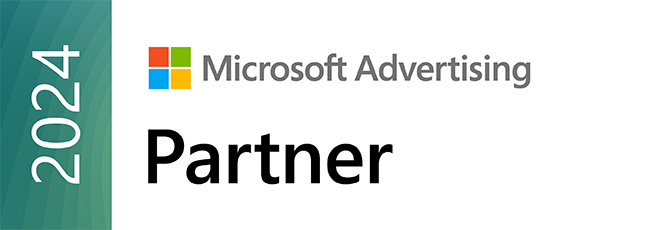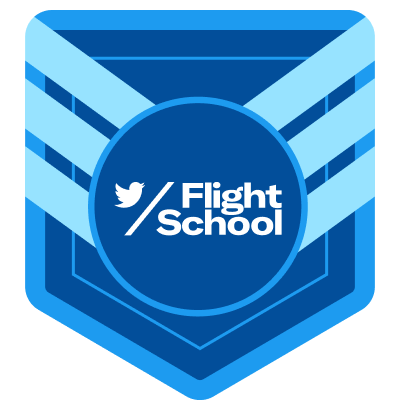The Power of Personalization: Transforming Event Experiences and Digital Marketing with AI and Machine Learning

In the ever-evolving landscape of digital marketing, event professionals are on a perpetual quest for innovation—to captivate, engage, and provide memorable experiences to their attendees. The emergence of artificial intelligence (AI) and machine learning technologies marks a pivotal shift in how we plan, execute, and experience events. This isn’t just about enhancing operational efficiency; it’s about redefining personalization, making each attendee’s experience uniquely engaging.
AI and machine learning offer the tools to not only understand but also anticipate the needs and preferences of attendees, promising a future where events cater to individual interests with unprecedented precision. From predictive analytics guiding event themes to AI-powered networking that connects like-minded individuals, the potential for personalization is limitless. As we explore these technologies, we uncover opportunities to transform traditional event experiences into extraordinary, personalized journeys that leave lasting impressions.
This shift towards data-driven, attendee-centric events challenges us to rethink our approach to event management. It challenges us to leverage technology not as a mere tool for efficiency but as a catalyst for creating deeper, more meaningful connections. In this dynamic, digital age, embracing AI and machine learning is not just an option; it’s imperative for those looking to lead in the event industry and create truly personalized experiences that resonate with every participant.
The Power of Personalization
In an era where experiences are valued more than ever, the power of personalization in the event industry cannot be overstated. Artificial Intelligence (AI) and machine learning are at the forefront of this revolution, transforming how we cater to each attendee’s unique interests, behaviors, and preferences.
Imagine walking into an event that feels tailor-made for you. Every session you attend, every product demonstration you interact with, and every networking opportunity presented to you seems perfectly aligned with your personal and professional interests. This isn’t just a vision for the future; it’s the present reality for events powered by AI and machine learning.
How AI Drives Personalization
AI excels in collecting and analyzing data from various sources, including past event interactions, social media behavior, and even direct feedback from attendees. By understanding these data points, AI can create comprehensive attendee profiles, which event organizers can use to tailor every aspect of the event experience. From customized agendas to personalized recommendations for sessions and meet-ups, AI ensures that attendees are matched with content and connections that resonate most deeply with their personal interests and professional goals.
Moreover, machine learning algorithms continuously refine these personalized experiences. As the system gathers more data on attendee preferences and behaviors throughout the event, it adapts and fine-tunes its recommendations in real-time. This dynamic approach to personalization ensures that the event remains relevant and engaging for each attendee from start to finish.
Personalized Event Experiences Powered by AI
1. Personalized Agendas: Consider a tech conference that uses AI to suggest breakout sessions, keynotes, and workshops based on an attendee’s past event history, job role, and expressed interests. The result is a customized agenda that maximizes the attendee’s value from the event.
2. Intelligent Networking: AI-driven networking apps can analyze attendee profiles to recommend potential connections with similar professional interests or challenges. By facilitating these targeted introductions, AI makes networking more efficient and meaningful.
3. Dynamic Content Delivery: At a large-scale marketing summit, AI can be used to tailor the content displayed on digital signage to the interests of nearby attendees, based on their movement patterns and session participation tracked through RFID badges.
4. Feedback-Driven Adjustments: Using AI to analyze real-time feedback from mobile event apps allows organizers to adjust elements of the event on the fly. If certain topics are receiving high levels of interest, additional sessions can be scheduled, ensuring that the event evolves in response to attendee preferences.
These examples highlight just a few ways AI and machine learning can be leveraged to create personalized event experiences. By prioritizing the individual needs and interests of each attendee, event professionals can elevate the overall quality and impact of their events, making them more engaging, valuable, and memorable.
The integration of AI into event personalization not only enhances the attendee experience but also provides event organizers with deep insights into preferences and trends. This intelligence is invaluable for planning future events, as it helps identify what works best and what needs improvement, ensuring that each event is better than the last.
Harnessing Event Data for Enhanced Planning
1. Predictive Analytics for Event Planning: An international trade show utilized machine learning algorithms to analyze data from previous events, including attendee demographics, session attendance, and exhibitor feedback. This analysis predicted the most popular topics and formats for the next event, allowing organizers to tailor the agenda to match predicted attendee interests closely.
2. Real-Time Engagement Tracking: At a corporate conference, organizers implemented AI-powered tools to track real-time engagement through mobile app interactions and social media sentiment. This immediate insight allowed them to make on-the-fly adjustments to session schedules and content delivery, significantly improving attendee satisfaction.
3. Post-Event Analysis for Continuous Improvement: After a large-scale music festival, organizers used AI to analyze ticket sales data, entry and exit times, and concession stand sales. The insights gained led to improved layout planning, better crowd management strategies, and optimized vendor placement for future events.
The Benefits of Data-Driven Insights
The insights gained from AI and machine learning not only enhance the attendee experience but also offer tangible benefits for event organizers:
– Strategic Planning: By understanding attendee preferences and behaviors, organizers can design events that better meet their target audience’s needs.
– Operational Efficiency: Predictive analytics can help optimize resource allocation, from staffing levels to venue selection.
– Enhanced Engagement: Insights into what attendees value most allow for the creation of more engaging and relevant event content.
– Continuous Improvement: Post-event analysis provides a clear roadmap for what worked well and what can be improved, ensuring each event is more successful than the last.
Data-driven decision making transforms the way events are planned, executed, and reviewed. By harnessing the power of AI and machine learning, event professionals can deliver more personalized, engaging, and successful experiences for their attendees.
Looking Ahead
As technology continues to advance, the role of AI and machine learning in the event industry will only grow more prominent. The ability to deliver highly personalized experiences and make data-driven decisions will set leading events apart, ensuring they stand out in a competitive landscape.
The future of event planning lies in embracing these technologies and leveraging them to create unforgettable experiences. By staying ahead of the curve and continually exploring new ways to integrate AI and machine learning, event professionals can unlock new levels of engagement, satisfaction, and success.
Ultimately, AI and machine learning are not just tools—they are catalysts for change, driving innovation and personalization in the event industry. Embracing these advancements will pave the way for more impactful and memorable events that truly resonate with every attendee.
FAQ
-
How does AI-driven event marketing adapt to evolving consumer preferences?
AI analyzes real-time data to identify evolving consumer preferences and trends, enabling event marketers to adapt strategies dynamically. By staying ahead of trends, AI-driven marketing campaigns remain relevant and engaging, resonating with target audiences and maximizing ROI in the ever-changing digital landscape.
-
Can AI-powered event personalization enhance attendee networking beyond professional interests?
Absolutely. AI not only matches attendees based on shared professional goals but also considers personal interests, hobbies, and passions. By facilitating connections beyond work-related topics, AI fosters more authentic interactions, turning networking sessions into opportunities for meaningful connections.
-
Can AI-driven personalization adapt to cultural nuances in event experiences?
Yes, AI algorithms can be trained to recognize and adapt to cultural nuances, ensuring personalized experiences resonate with attendees from diverse backgrounds. This adaptability enhances inclusivity and attendee satisfaction, making events more accessible and impactful on a global scale.
-
Can AI-driven event personalization adapt to real-time changes during an event?
Yes, AI continuously analyzes attendee interactions and feedback during events, allowing organizers to make real-time adjustments. By tracking session attendance, monitoring engagement levels, and analyzing attendee feedback, AI ensures that the event experience remains dynamic and responsive, optimizing attendee satisfaction throughout the event.
-
How can event organizers ensure the ethical use of AI in attendee personalization without compromising data privacy?
Event organizers can implement transparent data policies, offer opt-in/opt-out features, employ anonymization techniques, and establish clear communication channels to educate attendees about data usage, ensuring their privacy is respected while leveraging AI for personalization.
A thought-leadership piece written by the CEO of Kabloom, Richard Torriani.
Updated on May 28th, 2024

See how we rank as a Top Digital Marketing Agency on DesignRush.






